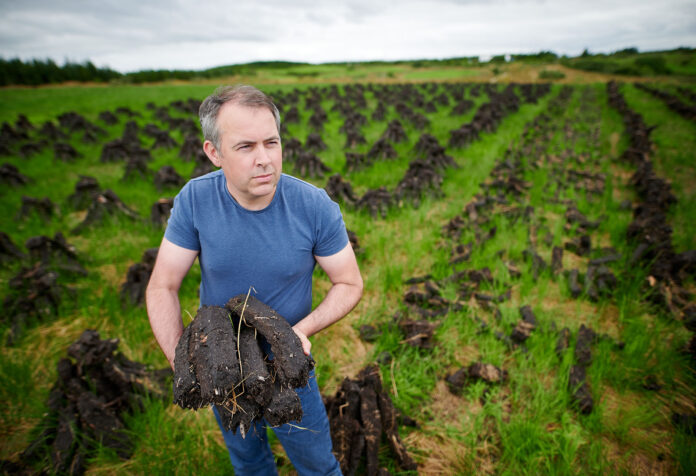THE publication of new greenhouse gas emissions targets for agriculture has left Clare farmers feeling angry and let down by the government, according to a local farm leader.
Clare Beef Plan chairman, Joe Woulfe, said local farmers fear the 25% cut in emissions by 2030 will led to a dramatic drop in production and income for producers at a time of spiralling input costs.
Mr Woulfe said the government needs to outline in detail how it intends to implement these new targets without adversely impacting farmers’ incomes.
“How can farmers continue to operate if they are hit with a 25% drop in their production and income. Farmers don’t have options like other sectors – they can’t drive around in electric tractors that don’t exist.
“Farmers are very concerned about their future livelihoods. Inputs are increasing all the time uncontrollably. It is like we are heading for Brexit round two.
“After Brexit, the price of beef dropped, but at least the cost of inputs remained more or less the same. This time the level of output could drop by 25%, while the costs of production could go up by 25%, if not more.
“It is hard to see how these new targets can be implemented without hitting farmers. Farmers feel scapegoated over climate change.
“Farmers have to work with nature. There is ongoing scientific research on measures to reduce greenhouse gases in agriculture, but it could take a few years before it is completed and ready to produce new measures that can be implemented by farmers.
In view of the growing world population and reports of an estimated 60% increase in beef consumption since the Covid-19 pandemic, Mr Woulfe asked who will provide this food for the global needs and asked if this gap will be bridged by farmers in other countries that are not constrained by environmental issues.
The Quilty farmer said he was recently told by a supermarket employee the vegan counter was the section where most products were regularly left unsold.
Beef Plan has pointed out if farmers reduce output in Ireland, the demand for beef will be filled by other less efficient producers leading to increased emissions elsewhere.
It argued biogenic methane from livestock should not be accounted for in the same way as emissions from the burning of fossil fuels as it has a short lifespan breaking down to its carbon/hydrogen constituents within eight to 15 years.
“This carbon is removed from the atmosphere by grass and the cycle continues. Once no extra cattle enter the system, there is no additional carbon entering the atmosphere. Carbon released from fossil fuels remains in the atmosphere for millennia.
“If a farmer converts part of their enterprise to renewable energy- anaerobic digesters, solar, wind power the greenhouse gas emissions reduction are not attributed to the agriculture sector, making achieving any reduction more challenging.
“Methane reducing additives are in an advanced stage of development. These should offset the need to cull the national herd.
“Ireland has 12 million acres of grass and almost a million kilometres of hedgerows. Yet farmers receive no recognition of the carbon they remove from the atmosphere, which is estimated to be in the region of 20 million tonnes.
“Since 2017 the suckler herd has reduced by over 140,000 cows. Therefore the beef sector has already experienced a large cut in emissions, which needs to be factored into any future reduction targets.”
Agriculture Minister Charlie McConalogue, said The Programme for Government and the Climate Act committed the government to strong climate action.
“The world is facing a climate crisis, so such action is absolutely essential. It also recognises the special economic and social role of agriculture, and the importance of sustainable food production. I am satisfied that the agreement we have arrived at strikes an appropriate balance in this regard.”
“This target reflects a very challenging but achievable ambition for the sector. The protection and enhancement of our sustainable food production system, while ensuring that agriculture plays its part in climate change mitigation, has been a priority for this government. I am confident that farmers will embrace this challenge and, as minister, I will stand full square behind our farmers on this journey to support them at every step,” he said.
Minister of State Pippa Hackett said the department will be supporting farmers through initiatives such as a new forestry programme and improved incentives to engage in organic farming and invest in renewable energy technology.
The government will also be assisting in the development of biomethane from Anaerobic Digestion (AD), which will provide opportunity for farmers who wish to consider additional income sources while also contributing significantly to decarbonising the energy system.
“I am confident that we can meet our climate action targets by working together in a solutions focused way,” she added.
East Clare correspondent, Dan Danaher is a journalism graduate of Rathmines and UL. He has won numerous awards for special investigations on health, justice, environment, and reports on news, agriculture, disability, mental health and community.




